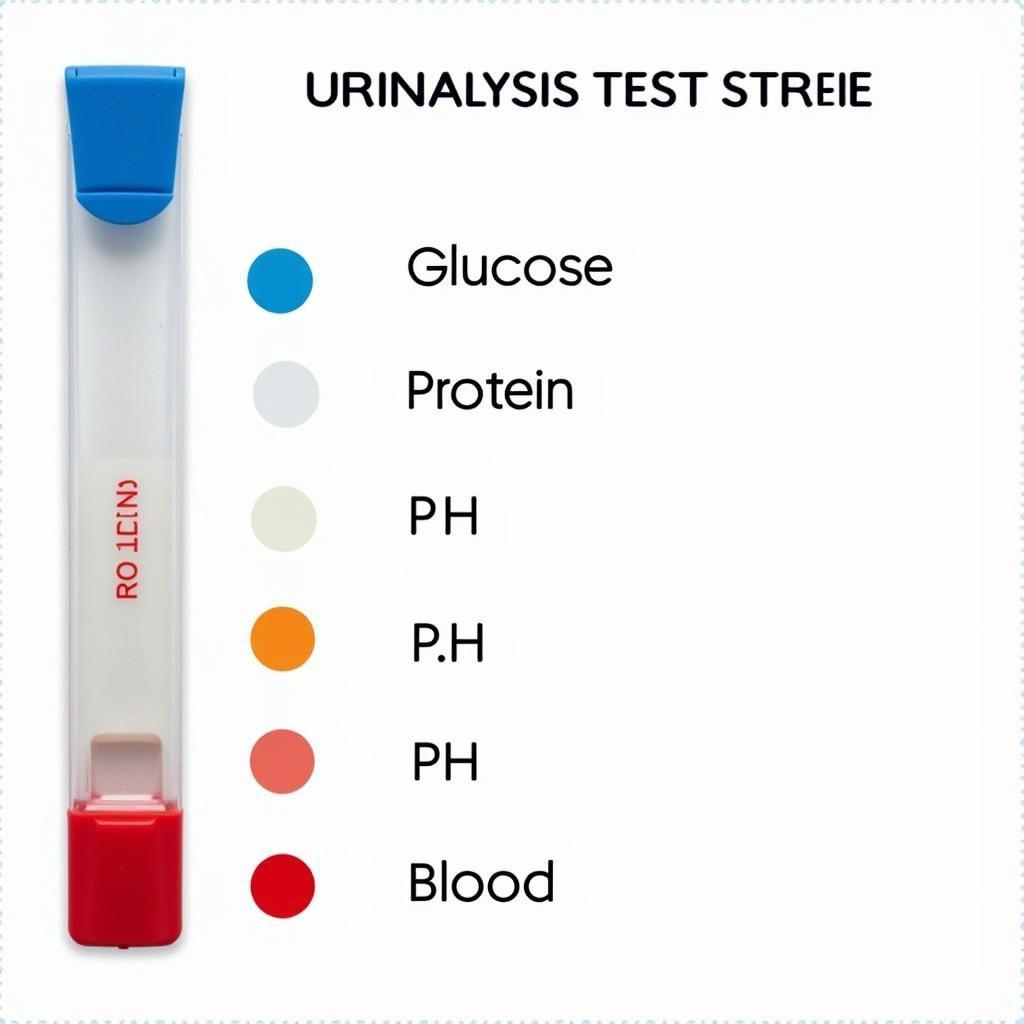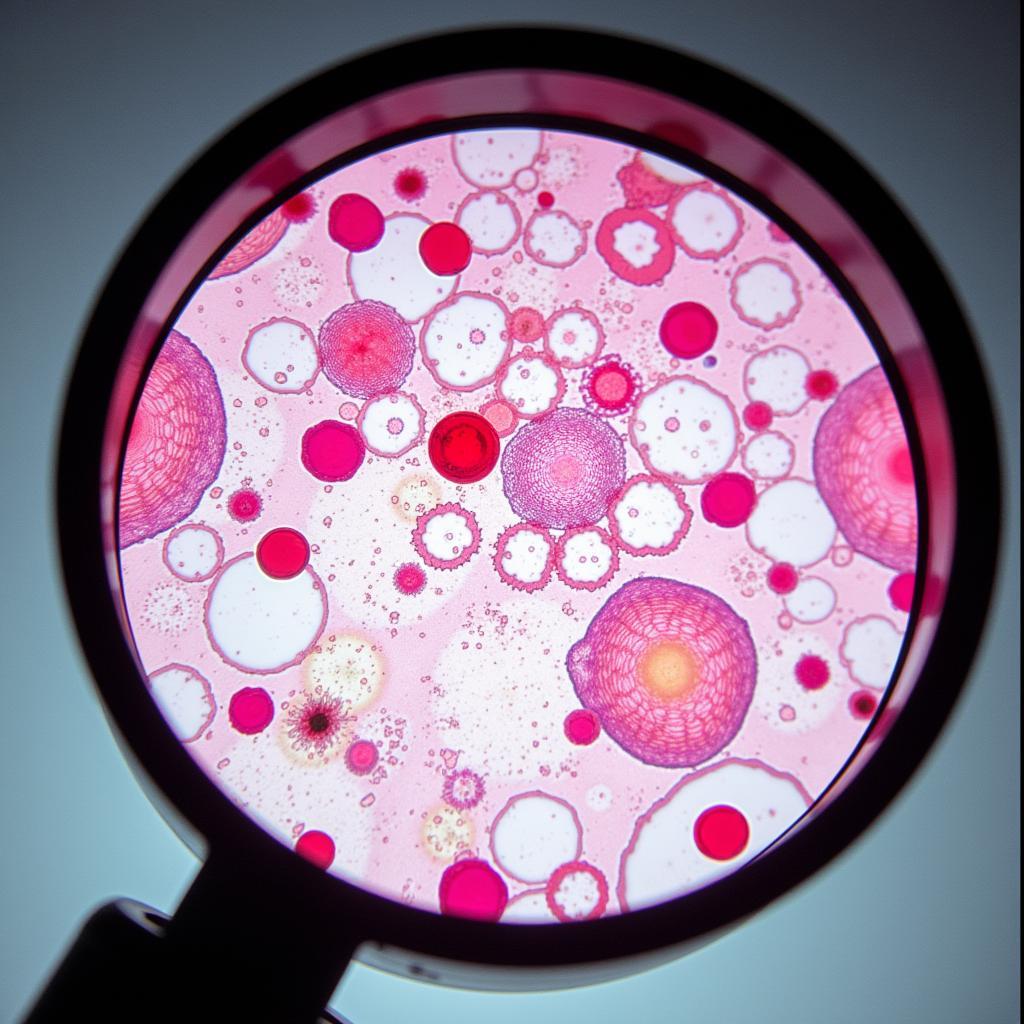Urinalysis is a crucial diagnostic tool providing valuable insights into a patient’s overall health. It’s a simple, cost-effective test that can detect a wide range of conditions, from urinary tract infections to kidney disease and even diabetes. This article will explore the importance of urinalysis in modern medicine and how it aids healthcare professionals in making informed decisions.
Unmasking Hidden Health Issues: The Power of Urinalysis
Urinalysis offers a non-invasive window into the body’s metabolic processes. By analyzing the physical, chemical, and microscopic properties of urine, clinicians can gain a comprehensive understanding of a patient’s health status. This powerful diagnostic tool helps detect early signs of disease, monitor existing conditions, and assess the effectiveness of treatment plans. Think of it as a detective, uncovering clues hidden within your urine to solve the mystery of potential health problems.
What Can Urinalysis Reveal?
Urinalysis can detect a surprising array of conditions, including:
- Urinary Tract Infections (UTIs): One of the most common reasons for urinalysis, it can detect the presence of bacteria and white blood cells indicative of an infection.
- Kidney Disease: Changes in urine protein levels and the presence of red blood cells can signal kidney dysfunction.
- Diabetes: High levels of glucose in the urine can point to uncontrolled diabetes.
- Liver Disease: Bilirubin in the urine can suggest liver problems.
- Dehydration: Concentrated urine with a dark color can be a sign of dehydration.
 Urinalysis Test Strip Results Showing Various Parameters
Urinalysis Test Strip Results Showing Various Parameters
How is Urinalysis Performed?
The process is straightforward and involves three main steps:
- Visual Examination: The urine sample is assessed for color, clarity, and odor.
- Chemical Examination: A dipstick is used to detect the presence of various substances, such as glucose, protein, ketones, and blood.
- Microscopic Examination: A small amount of urine is examined under a microscope to identify cells, crystals, and other microscopic components.
Why is Urinalysis Important for Early Detection?
Early detection is key to effectively managing many health conditions. Urinalysis can provide crucial early warnings, allowing for timely intervention and potentially preventing serious complications. For example, early detection of kidney disease through urinalysis can help slow the progression of the disease and preserve kidney function.
How Often Should I Get a Urinalysis?
The frequency of urinalysis depends on individual health factors and medical history. Your doctor will recommend the appropriate schedule based on your specific needs. Routine urinalysis can be part of a regular checkup or may be ordered more frequently if you have certain risk factors or existing conditions.
 Doctor Explaining Urinalysis Results to Patient
Doctor Explaining Urinalysis Results to Patient
Urinalysis: A Cost-Effective Diagnostic Tool
Compared to other diagnostic tests, urinalysis is remarkably affordable. Its low cost makes it accessible to a wider population and a valuable tool for routine screening and monitoring.
“Urinalysis is a cornerstone of preventative medicine, offering a quick, inexpensive, and non-invasive way to identify potential health concerns,” says Dr. Emily Carter, a nephrologist at the University of Chicago Medical Center.
What Should I Do if My Urinalysis Results are Abnormal?
If your urinalysis reveals any abnormalities, your doctor will likely order further testing to determine the underlying cause. Don’t panic; abnormal results don’t always indicate a serious problem. However, it’s essential to follow up with your doctor to get a proper diagnosis and appropriate treatment.
 Microscopic View of Urine Sample
Microscopic View of Urine Sample
Conclusion: Urinalysis – A Vital Tool for Health Management
Urinalysis remains an essential diagnostic tool in modern medicine, providing valuable insights into a wide range of health conditions. Its simplicity, cost-effectiveness, and ability to detect early signs of disease make it a vital component of preventative care. From identifying urinary tract infections to monitoring kidney function, urinalysis plays a crucial role in maintaining overall health and well-being. For further assistance or expert advice on automotive diagnostic tools, please contact CARW Workshop at +1 (641) 206-8880 or visit our office at 4 Villa Wy, Shoshoni, Wyoming, United States.
“Urinalysis is like a snapshot of your internal health,” adds Dr. David Miller, a family physician in Boston. “It’s a valuable tool that helps us understand what’s going on inside your body and make informed decisions about your care.”
FAQ
- Is urinalysis painful? No, providing a urine sample is generally not painful.
- How do I prepare for a urinalysis? Your doctor will provide specific instructions, but generally, there’s no special preparation required.
- How long does it take to get urinalysis results? Results are usually available within a day or two.
- Can medications affect urinalysis results? Certain medications can interfere with the results. Inform your doctor about all medications you’re taking.
- What does cloudy urine indicate? Cloudy urine can be a sign of infection or other underlying conditions.
- Can urinalysis detect pregnancy? While not a primary test for pregnancy, urinalysis can sometimes detect the presence of hCG, a pregnancy hormone.
- What does blood in the urine mean? Blood in the urine can be caused by various factors, including infection, kidney stones, or more serious conditions. It’s essential to consult your doctor for further evaluation.








One Response